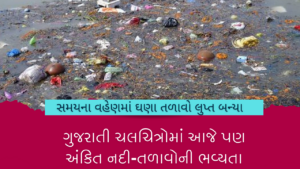There is a line of difference between targeting a religion and raising voice against the evil. The Kerala Story attempts to establish the latter. Religion (no matter which) always guides one to lead a non-violent and sacred path by not demeaning any religion’s faith.
Before deconstructing the narrative presented in Sudipto Sen’s The Kerala Story, let’s try to remember Goran Kapetanovic’s Caliphate. It’s an eight- part series which focuses on the happenings in the life of three Swedish girls who were indoctrinated to imbibe the ISIS cause. Moreover the series constantly harped on how religious fundamentalism can seduce individuals and destroy lives. It created a perfect structure to mix both; psychological drama and a thriller edge, with a less attention on the logistics of the attack as the seduction of its potential female perpetrators.
Sen disapproves of being a master storyteller like Kapetanovic, but that is not the prime factor that should drive people to watch this movie. The movie aims to unravel a truth that has been brushed under the carpet for a while now and which, if not revealed might cost innumerable lives of the Hindu and Christian girls in Kerala.
One needs to understand that the film is not against Islam, but the allegations are against an organisation. It is for ISIS to come and protest if the incidents shown in the movie are untrue. No sensible Muslim in India will ever support the way ISIS handlers operate to ensnare gullible, vulnerable young girls to become ISIS brides and sex slaves. Its basic humanity. The narrative seeks to present explanations about a particular organisation’s hegemonic facts. The goal is not only to bring the entire world under the aegis of Allah, but ISIS is on a war footing to unleash terror, disrupt world peace, ruin the lives of innocent people, ransack the basic dignity of women and destroy civilisations to fulfil their selfish agenda. They will not have any remorse for butchering, raping or misleading impressionable youngsters. Every hour, an army of monsters is created to take up the devilish cause. Sadly, as seen in Caliphate and In the Kerala Story, too many young girls are brainwashed to believe it’s an honour to be chosen for the ‘holy war’.
 The background score jars at times in the Kerala Story. Frankly, the easy way in which the two nursing students get convinced by their conniving roommate to change their religion appears a tad too convenient from a writing perspective. The entire brain washing process needed more gravitas. The movie should have cleared that the girls are being used by PFI or related organisation who forces conversion. It should have been balanced with the message. The constant bashing about Hindu religion by an agent becomes irresistible ‘may be that is what the director wanted’. The people of other community in question should also have a positive person, they had just kept one muslim guy with skull cap with girl family but he never spoke anything.
The background score jars at times in the Kerala Story. Frankly, the easy way in which the two nursing students get convinced by their conniving roommate to change their religion appears a tad too convenient from a writing perspective. The entire brain washing process needed more gravitas. The movie should have cleared that the girls are being used by PFI or related organisation who forces conversion. It should have been balanced with the message. The constant bashing about Hindu religion by an agent becomes irresistible ‘may be that is what the director wanted’. The people of other community in question should also have a positive person, they had just kept one muslim guy with skull cap with girl family but he never spoke anything.
One of the hard- hitting dialogues from the movie would shake people from within. It is when Shalini is informed that she won’t be getting her phone back as the Sharia Law does not allow women to keep a phone with themselves and she responds with a logic and says “जब शरिया कानून बना था, तब फोन नहीं था”, and the narrative follows many such scenes.









